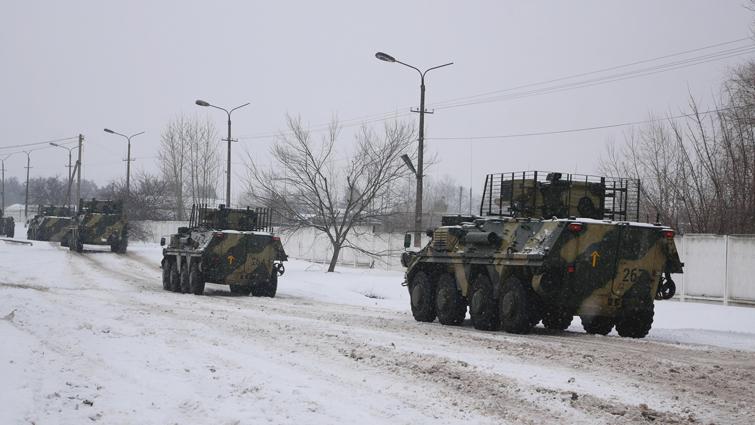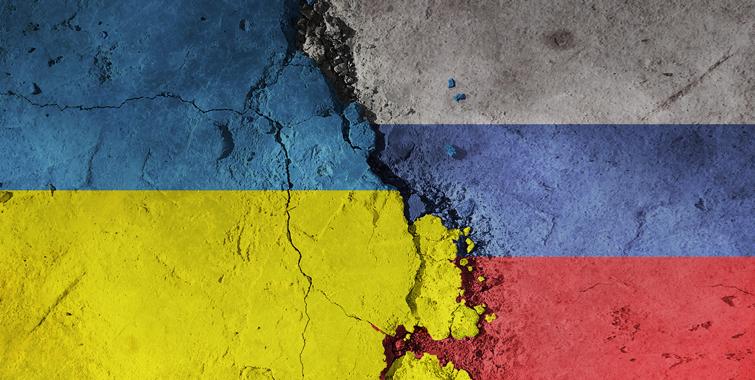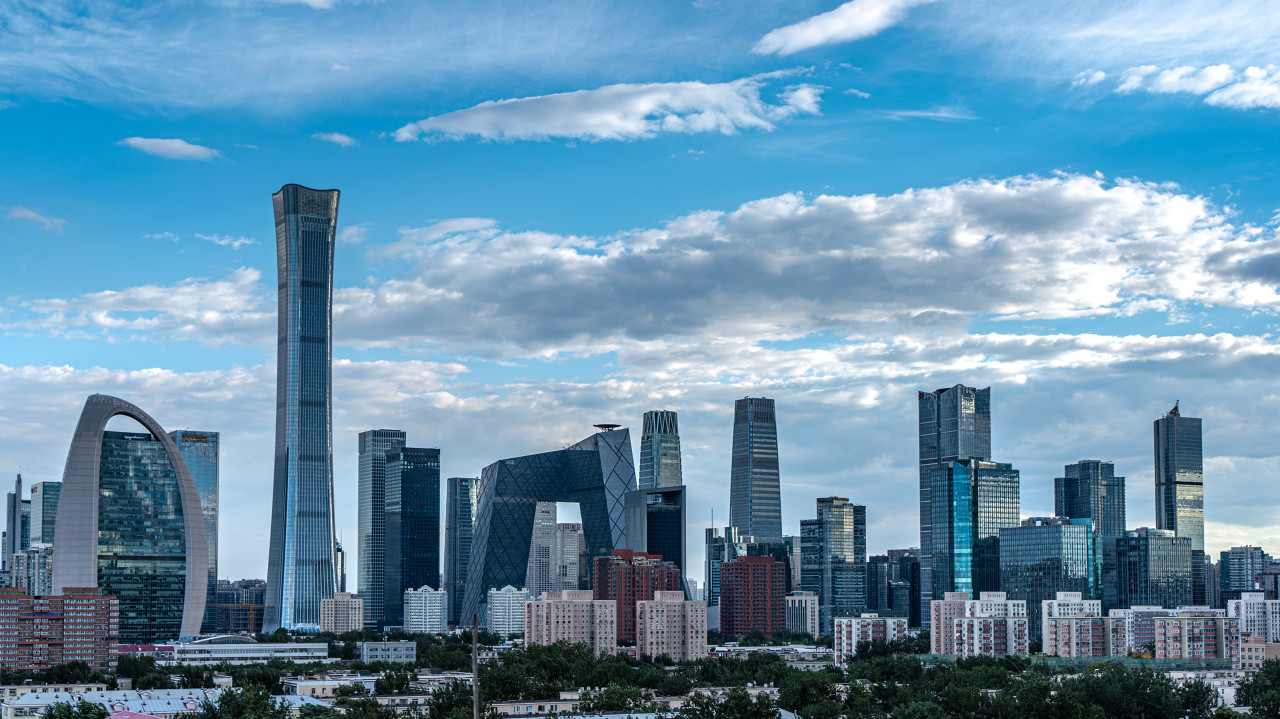By Li Wei, Professor of Economics at Cheung Kong Graduate School of Business

The conflict between Russia and Ukraine has been ongoing since February 24. When the conflict first broke out, a swift Russian victory was widely considered a foregone conclusion. However, the war has gone on for months with no peace deal in sight. While the West has not physically entered the war, it has sent weapons and other aids to Ukraine and has imposed massive economic sanctions on Russia, including but not limited to strict financial sanctions, which greatly threatened the Russian economy and brought unprecedented volatility to global financial markets. Moreover, this has the potential to send the global economy into a dreaded stagflation.
There is a popular view in China and abroad that China will be a net beneficiary from this war. The reason is that the Russian-Ukraine war has brought to the forefront the geopolitical conflict between Russia and the West, particularly with the United States, shifting America’s strategic focus from Asia to Europe and consequently helping to reduce the international pressure that China faces. In other words, China will come out on top in this geopolitical conflict. To illustrate this point, the argument often cites the U.S.-Afghanistan war as an example. After President George W. Bush took office, he was prepared to put more pressure on China.
However, the September 11th 2001 terrorist attacks completely changed the picture. The United States immediately shifted its strategic focus to combating international terrorism, which in turn eased strategic pressure on China over the last 20 years, and gave China time to make great strides in developing its economy and becoming an integral part of the global economy. Today, just as the U.S had started to revisit its “pivot to Asia” strategy, treating China as a strategic rival, the Russian-Ukraine conflict is now causing the U.S to rethink its global strategy and allocate more of its resources to Europe.
It should be said that in the short term there is merit to this argument, but in the long run it is rather one-sided. There are many reasons why China’s economy, which has grown rapidly since its reforms and opening-up, is now the world’s second largest economy. One of the key reasons for this is that China has integrated itself into the global economy. Globalization is like a public good. War between Ukraine and Russia is a threat to globalization and China should play an active role in finding a resolution that both sides will accept, in order to safeguard the development of globalization.
In addition to geopolitical interests, China has an interest in maintaining Ukraine’s sovereignty. Ukraine is neither a member of NATO, nor a Russian vassal state, but a sovereign country. Ukraine is an integral partner in China’s Belt and Road Initiative, and China has made significant investment in Ukraine, so maintaining peace and Ukrainian sovereignty is of great significance to China to ensure the security of these investments. Moreover, since Ukraine was an important industrial center of the former Soviet Union, it has a vast amount of technological and industrial capabilities, and it has been more willing to engage with China on technology related cooperation than the West. In contrast, Russia has long maintained its wariness of China mainly due to historical animosity in its Far-East region, which will not likely disappear in the foreseeable future, despite Russia’s apparent closeness to China today.

On the surface, the Russia-Ukraine conflict is a war between a great power and a medium-sized power, but behind it lies the contest between the great powers. So far, the war is relatively controlled within the border of Ukraine, but no one can predict what is going to happen. We can look at the Nazi’s rise to power in the 1930s as a lesson. It is generally believed that World War II started on September 1, 1939, when Hitler invaded Poland after signing the Molotov-Ribbentrop Non-Aggression Pact with the Soviet Union. But in hindsight, this was one among a long line of events, which at the time might have seemed unrelated.
This line of events includes: the Japanese invasion of Manchuria in 1931, the Italian invasion of Libya in 1935, the remilitarization of the Rhineland in 1936, the break-out of the Spanish Civil War that same year, the Anschluss and the Sudeten Crisis in 1938 (the annexation of Austria into Nazi Germany), the Soviet invasion of Poland weeks after the German invasion, German blitzkrieg rolling westwards the following year, German Operation Barbarossa against the Soviet Union, and Japanese attack on Pearl Harbor in 1941, which officially brought the United States into World War II, even though the United States had been supporting the UK, the Soviet Union and China before Pearl Harbor.
World War II did not start with a single big bang. Instead, it built up gradually with series of small and big bangs. Before the Russia-Ukraine conflict, Russia had already fought against Georgia and annexed Crimea from Ukraine. The rights and wrongs of these events are hard to pin down in a moment, but in an economically interconnected world, it is evident now that these conflicts have threatened the global economy. Europe, for example, relies heavily on Russia for energy, but western countries led by the United States, have now imposed a series of economic sanctions on Russia, even removing Russia from the Society for Worldwide Interbank Financial Telecommunication (SWIFT). Russia is now becoming a “pariah” in the global economy.

The history of mankind tells us that it is easy to start a war, but very difficult to end one. The Russia-Ukraine conflict is not just an escalation of tensions between two countries, it is an upheaval to the global order. Russia’s relations with the western world are now under a state of uncertainty, and this poses a serious threat to globalization.
As one of the most significant beneficiaries in the new era of globalization, China has a vested interest and a duty to maintain global order. To a certain degree, globalization is China’s lifeline. In order to realize “the great rejuvenation of the Chinese nation”, a developed and peaceful economic system is indispensable, therefore protecting globalization is in China’s fundamental interests. As a close partner of Russia and a good friend of Ukraine, China is in a unique position to be proactive and come up with a solution that is acceptable to both sides. This is a very difficult task, and is easier said than done, but it is necessary that China contributes to the de-escalation of this conflict. China, as a global heavy weight in both economics and geopolitics, cannot stay out of this conflict and has already started to act as a mediator. Hopefully, China will play a bigger role in resolving this conflict in the future and in piecing the fallen Humpty Dumpty—the global economic system—together again.






















